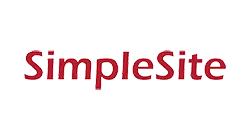To compare the best website builders on ease of use, templates, customer service, and value for money, we tried to build the same site on each platform. Check out the results here.
Webpop is a Content Management System and cloud-based website editor rolled into one. Fair warning, however: unlike most website builders out there, Webpop is best suited for tech-savvy users with an understanding of HTML and CSS. Incorporating HTML5, CoffeeScript, Sass, and the Compass core framework, users will enjoy this clean, real-time web editor that enables you to collaborate with team members as well as clients on projects.
To start you off, Webpop offers a selection of black-and-white “Foundation” themes that can be fully customized: from there, you can add custom forms to your site, create custom categories, set custom URL’s, and much more with the Webpop editor. You can even establish on-site editing for your clients, so they can easily update their sites on their own. Best of all, all Webpop plans come with high-performance managed cloud hosting and in-app chat support, so you won’t need to search for another hosting provider.
Webpop’s most popular plan is their Studio plan, which includes 5 live sites and 100 gigs of bandwidth. This is more than sufficient for a few small businesses. You can also choose to include extra live sites for an extra fee. If you have a large portfolio of sites to manage, Webpop offers an Enterprise plan that gives you the ability to have 500 live sites and 10 TB of bandwidth. You can add additional live sites at a discounted price.
If you’re not sure Webpop is right for you, read our rundown of the best website builders to learn about better options.
 Website Planet
Website Planet









